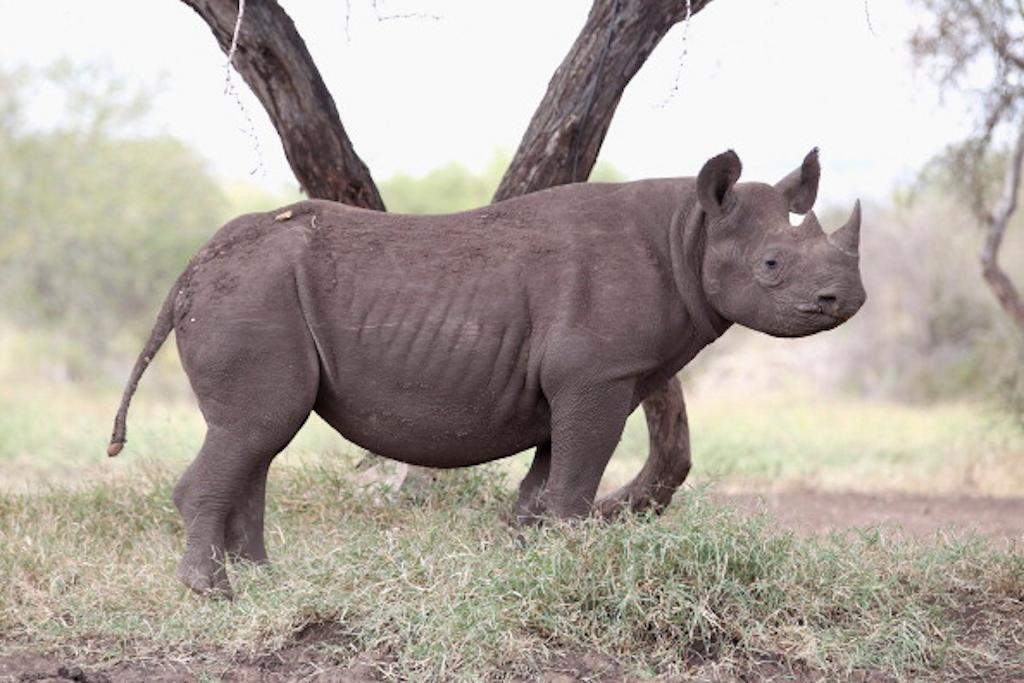South Africa deploys high-tech airplane to stop rhino poachers
Rhinos at a water hold in Mkomazi rhino sanctury on June 19, 2012 in Mkomazi, Tanzania. The Aspinall Foundation along with the Tusk Trust and the George Adamson Trust combined forces to stage a rare translocation of three captive born black rhino to Mkomazi National Park in Tanzania in order to rejuvenate numbers of the black rhino in the area. The three animals, Grumeti, Monduli and Zawadi were airlifted in a dedicated DHL Boeing 757 from Manston Airport in Kent direct to Kilimanjaro Int Airport in Tanzania. The rhino have been donated by Damian Aspinall, Chairman of The Aspinall Foundation, from their breeding group at Port Lympne Wild Animal Park in Kent. The reintroduction of endangered species to the wild to assist breeding programmes is a major focus of The Aspinall Foundation. Prince William as Patron of Tusk Trust and a dedicated campaigner against poaching visited the rhinos at Port Lympne ahead of their translocation and today released a speech via the BBC highlighting his dedication to the fight against the illegal trade of ivory.
South African rhinos roaming Kruger National Park will soon have high-tech protection against poachers, who covet the animal's horns.
Paramount, Africa's largest private defense firm, has donated a low-speed reconnaissance aircraft to Kruger National Park, which will use heat sensors to ferret out poachers before they can strike, said Reuters.
Read more from GlobalPost: Forget cocaine: rhino horn is the new drug of status
The aircraft, called a Seeker Seabird, was unveiled at Kruger National Park's Skukuza airport on Tuesday, and is set to regularly patrol the massive reserve, according to Paramount's website.
Demand for rhino horn is rising quickly in Asia, and African park rangers must fight a constant battle against increasingly technologically advanced poachers, motivated by the huge sums rhino horn can command.
Unfortunately, poachers have been known to infiltrate the parks themselves. In February, four park staff members were arrested after two rhinos were poached within the protected area, said the BBC.
According to Kruger's website, the park has lost a whopping 760 rhinos to poaching since January 2010, out of 1369 total poaching deaths in South Africa.
Still, there are signs of positive progress: in a press release, Dr. David Mabunda, the CEO of SANParks, said that the park has made 246 poaching arrests since 2012, and 640 since January of 2010.
According to StopRhinopoaching.com, a website that tracks rhino deaths at the hands of poachers, there have been over 588 deaths thus far this year in Africa.
The article you just read is free because dedicated readers and listeners like you chose to support our nonprofit newsroom. Our team works tirelessly to ensure you hear the latest in international, human-centered reporting every weekday. But our work would not be possible without you. We need your help.
Make a gift today to help us reach our $25,000 goal and keep The World going strong. Every gift will get us one step closer.
